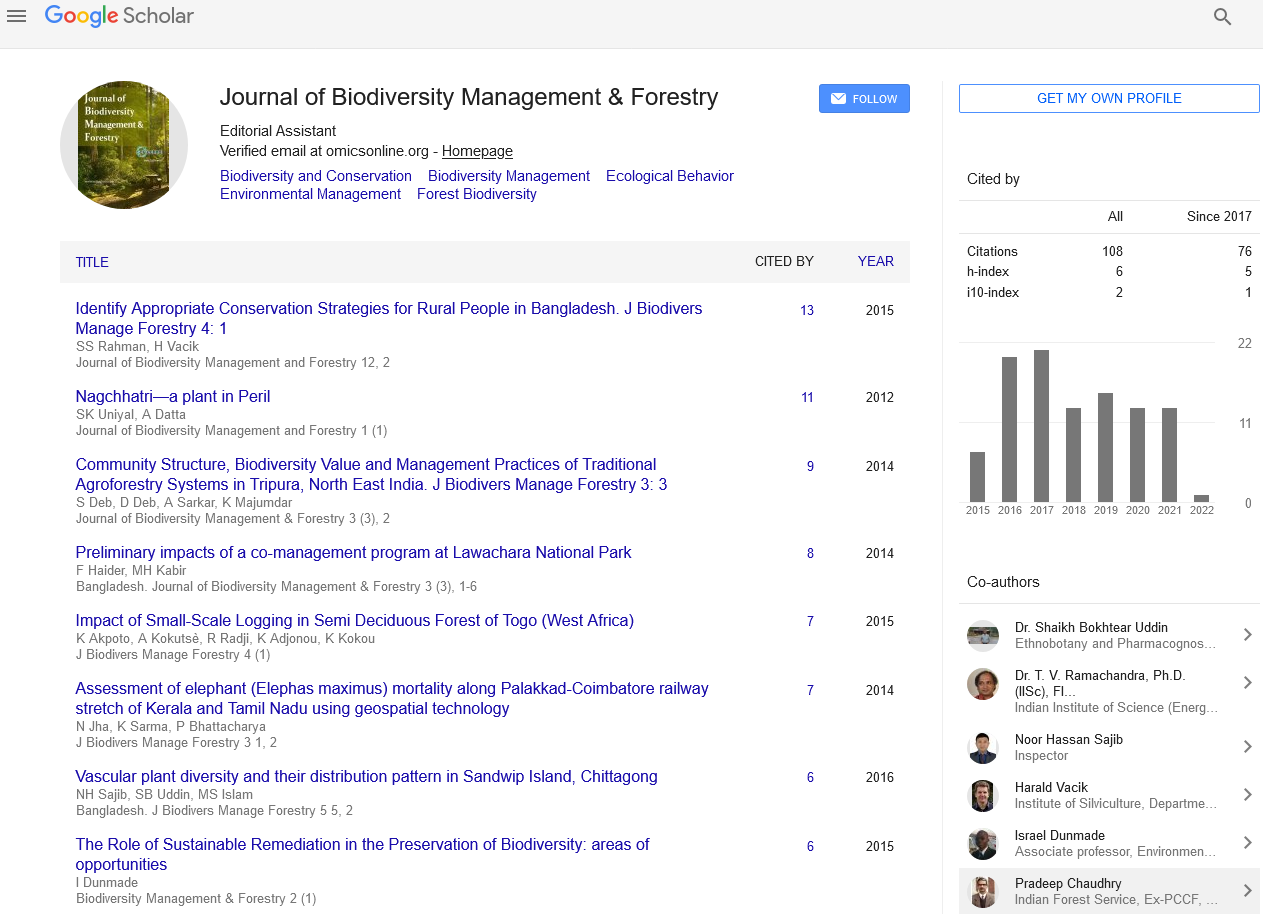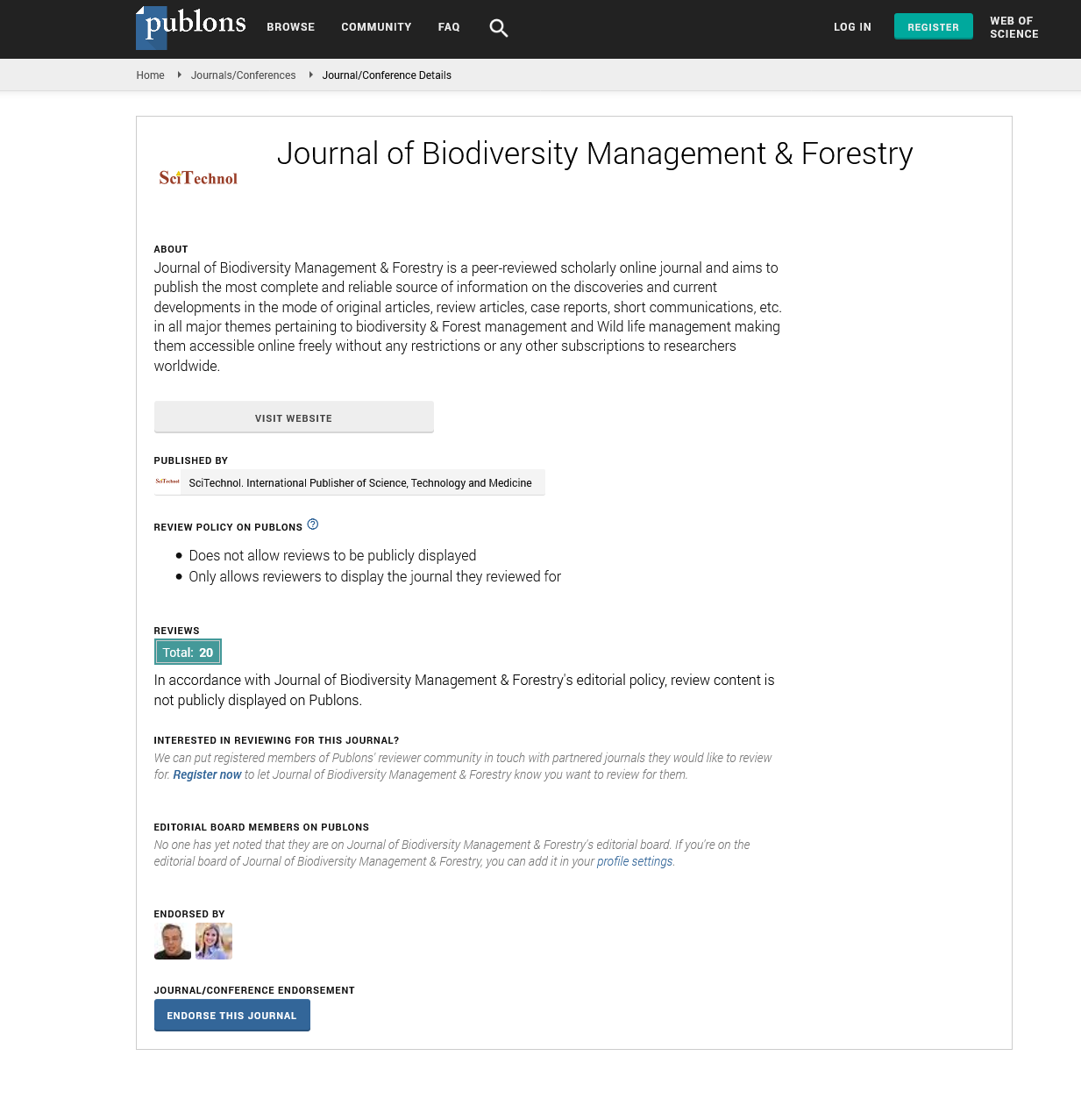Research Article, J Biodivers Manage Forestry Vol: 6 Issue: 1
Tragedy of the Commons and Economics of Deforestation in Nigeria
Ume Chukwuma Otum1*, Ijeoma Joy Frederick2 and Kalu Martina3
1Recourse and Environmental Economics University of Nigeria, Nsukka, Nigeria
2Development Economics, University of Nigeria, Nsukka, Nigeria
3Department of Agriculture Economics, University of Nigeria, Nigeria
*Corresponding author: Ume Chukwuma Otum
Recourse and Environmental Economics University of Nigeria, Nsukka, Nigeria
Tel: +2349081866062
E-mail: chukwuma.ume@unn.edu.ng
Received date: August 26, 2016 Accepted date: April 19, 2017 Published date: April 25, 2017
Citation: Otum UC, Frederick IJ, Martina K (2017) Tragedy of the Commons and Economics of Deforestation in Nigeria. J Biodivers Manage Forestry 6:1.
Abstract
This paper provided an economic analysis of deforestation in Nigeria. Notably, it discussed the nature and degree of deforestation in Nigeria, evaluation of forest policy in Nigeria, agricultural expansion and deforestation, and the economic losses from deforestation. Other issues discussed include the impact of macroeconomic variables and market failure on deforestation in Nigeria, and, it provided some recommendations as well. Literatures were reviewed and secondary data were analyzed using descriptive statistics. Evidence shows that Nigeria has 12% of her landmass as forest. Also, Nigeria has the highest rate (after Vietnam) of forest depletion from 2000 – 2005. The country loses 139067Ha of her forest area yearly, from the period 1990 – 2005.This means that Nigeria has lost 35.7% of her forest cover within this period. It also means that Nigeria’s total forest cover as of 2005 is 7130227Ha. Projecting at the same rate, Nigeria’s forest cover by the year 2020 will only be 4584735.961Ha, which represents only 4.963% of her entire landmass. What this suggests is that unless decisive steps (promotion of hydroponic agriculture, bottom-top forest management, etc.) are urgently taken, the country will lose all her forest areas by the year 2052.

